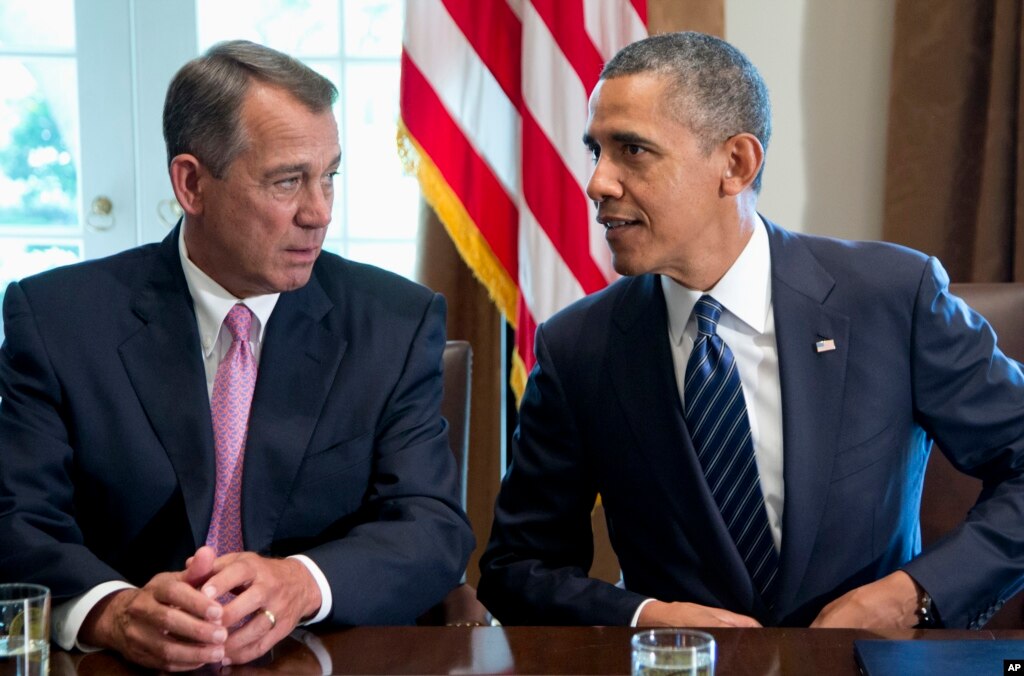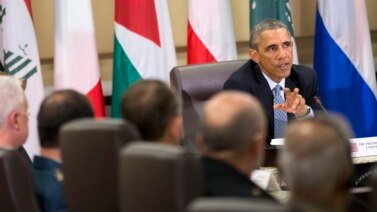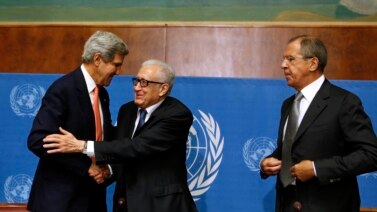
From VOA Learning English, this is In The News.
This week, a United States Senate committee voted in support of a possible American military strike against Syria. The Senate Foreign Relations Committee approved a proposed resolution by a vote of 10 to seven. The resolution gives President Barack Obama power to take military action against Syria because the United States says the Syrian government used chemical weapons against civilians. The resolution calls for limited U.S. action lasting no more than 90 days. It does not permit the use of American ground troops in Syria.
The resolution now goes to the full Senate. The House of Representatives must also vote on it.
The Senate committee vote came less than a week after United Nations chemical weapons inspectors left Syria. U.N. officials sent the inspection team to investigate an attack that took place 10 days earlier. American officials say more than 1,400 people were killed in the attack, near Damascus.
The government of Syrian President Bashar al-Assad denies using chemical weapons. It says Syrian rebels used them against government soldiers.
Last Saturday, President Obama spoke to Americans and the world about Syria. He said U.S. intelligence is clear that “well over 1,000 people” were killed -- gassed to death by their own government. He denounced what he called the worst chemical weapons attack of the 21century.
President Obama and some leading lawmakers have expressed strong support for military strikes against Syria. But a recent study found that 59 percent of Americans questioned oppose the idea.
Christopher Hill is a former U.S. ambassador to Iraq and a former special representative to Kosovo. He supports limited military action against Syria. He says the world needs to send a strong signal that anyone who uses chemical weapons will be punished.
“But the problem is we don’t have an overall way forward on Syria. People are out there fighting in Syria, either on Assad’s forces or against Assad, because they have no idea what the future of the country is going to hold and therefore they feel that in order to safeguard their future, they need to fight.”
Retired U.S. Marine Corps General Anthony Zinni agrees with Mr. Hill. General Zinni headed “Operation Desert Fox,” a series of strikes against Iraq in 1998. He says American military action will strengthen rebel forces allied with al-Qaida.
“Any strikes on Assad weaken him. When you weaken him, you strengthen the opposition. Those extremists are also part of the opposition.”
Some experts say a U.S. military strike might incite the Shi’ite militant group Hezbollah to attack Western targets or Israel. Others say the Syrian military might use more chemical weapons against rebels and civilians.
General Zinni says the situation is like a theatrical production.
“Once Assad goes -- when, and if -- this could even be a greater mess than it is now. I mean, this civil war isn’t over because it will have an ‘Act Two’ to it.”
The former general says that “act” could see Syrian opposition groups fighting each other after President Assad is gone.
And that’s In the News, from VOA Learning English. I’m Steve Ember.





